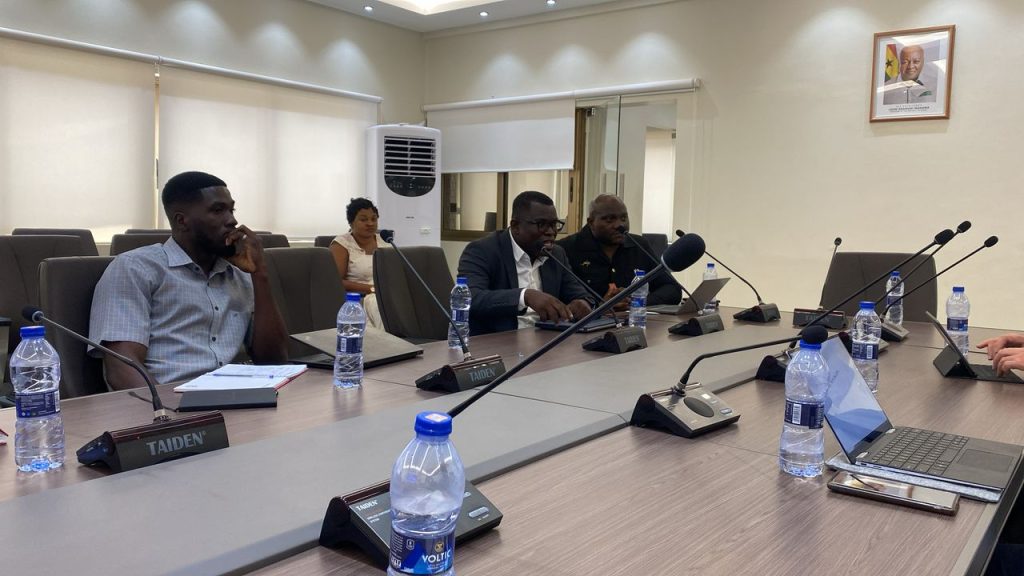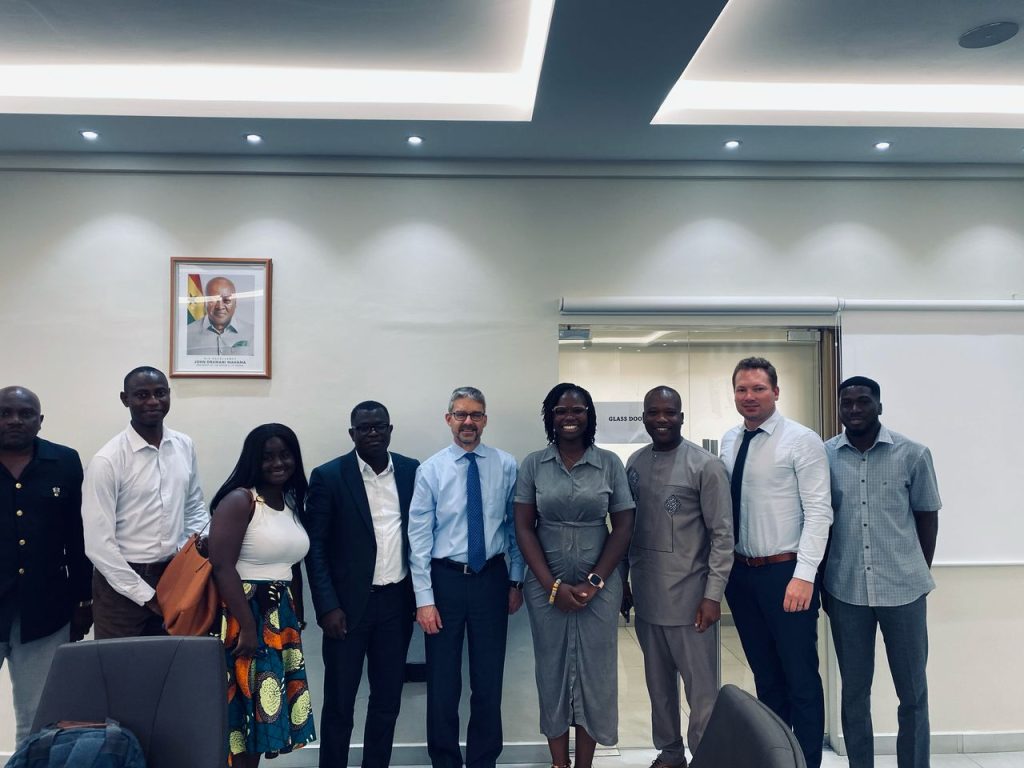Monday, April 14 marked an important step towards reforming the Value Added Tax (VAT) system in Ghana, as BudgIT Ghana, the Tax Justice Coalition, Oxfam in Ghana, and the Integrated Social Development Centre engaged with the IMF team from the Fiscal Affairs Department at the Ministry of Finance and Economic Planning. This meeting was part of a broader initiative to gather input from civil society organisations and professional bodies like the Chartered Institute of Taxation, focusing on crucial policy reforms in the VAT framework.
As the government aims to implement comprehensive VAT reform this year, the goal is clear: to enhance tax compliance and simplify the system for all taxpayers. BudgIT Ghana, represented by the Country Lead, Ms. Jennifer Moffatt, introduced several crucial points during the discussion, each addressing common challenges and advocating for a fairer taxation process.

One of the key takeaways from the dialogue was the need to demystify VAT calculations. Many taxpayers struggle with understanding the complex computations involved, and simplifying this aspect of VAT could significantly ease the burden on individuals and businesses alike. Moreover, the current VAT structure, characterised by its complexity and multiple rates, requires reevaluation. A streamlined approach would not only promote clarity but also pave the way for improved compliance rates among taxpayers.
Taxation significantly influences various demographic groups across society, with one of the most critical considerations being its particular impact on women. Women are often overrepresented in the informal sector, which encompasses a wide range of employment that lacks formal contracts or protections. This situation places them at a disadvantage regarding tax obligations and benefits, highlighting the need for a thorough understanding of how tax policies affect them. Recognising and addressing the gender aspect of taxation is not just a matter of social justice; it is essential for developing reforms that are both inclusive and equitable. To achieve this, policymakers must ensure that taxation systems are designed to consider the unique challenges faced by women in the informal economy. By doing so, we can create a fairer taxation structure that supports all demographics, ultimately leading to more sustainable economic growth and a reduction in inequality.

In addition to these points, BudgIT Ghana emphasised the importance of aggressive tax education campaigns. Raising awareness and educating taxpayers about their rights and obligations should be a priority in the reform agenda. This can foster a culture of accountability and transparency, ultimately encouraging voluntary compliance among taxpayers.
Finally, the issue of tax levies such as the National Health Insurance Levy (NHIL), the Ghana Education Trust Fund (GETFUND), and the Tourism Levy was raised. It is essential that these funds are collected alongside VAT and deposited into their respective accounts without interference from the Ministry of Finance and Economic Planning. These levies are designated for specific social interventions and must be protected to ensure they serve their intended purpose.
As the government prepares to finalise its VAT reform strategy, we eagerly anticipate seeing how these contributions will be reflected in the report submitted by the Fiscal Affairs team to the Minister of Finance by the end of the month. By incorporating these insights, we hope to move towards a more effective and equitable taxation system that meets the needs of all Ghanaian citizens.
Stay tuned for more updates on this significant development in our tax landscape!
